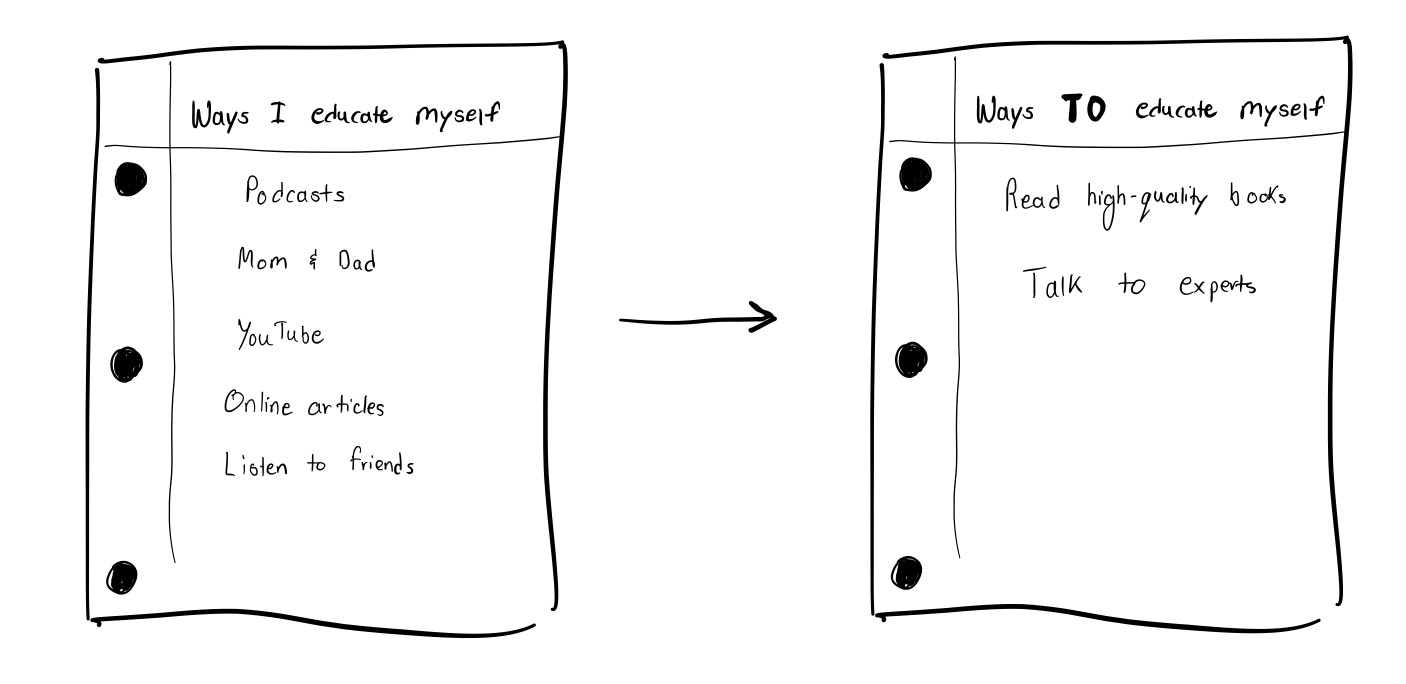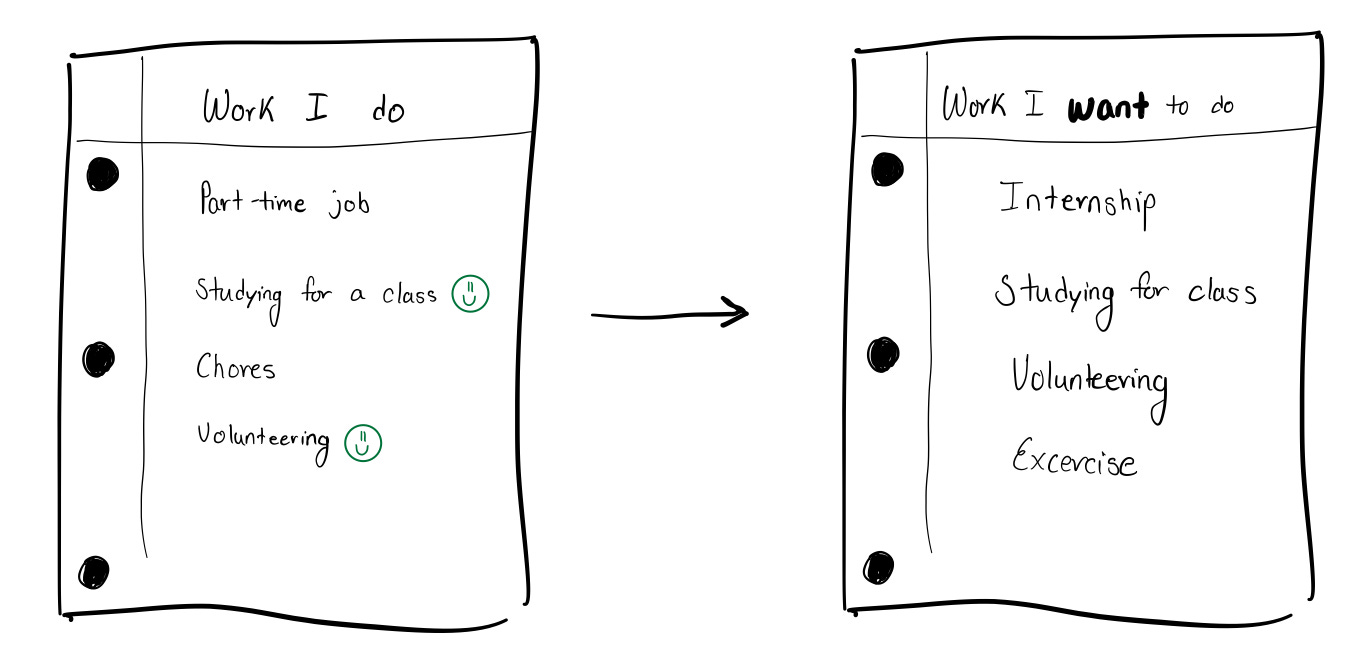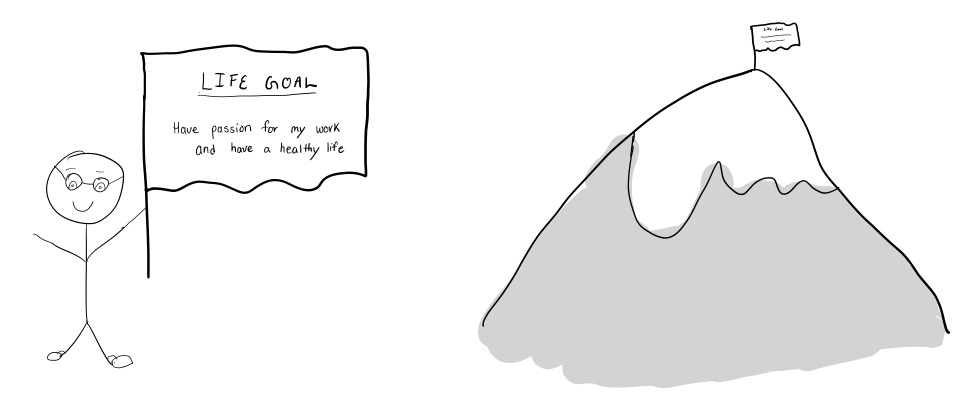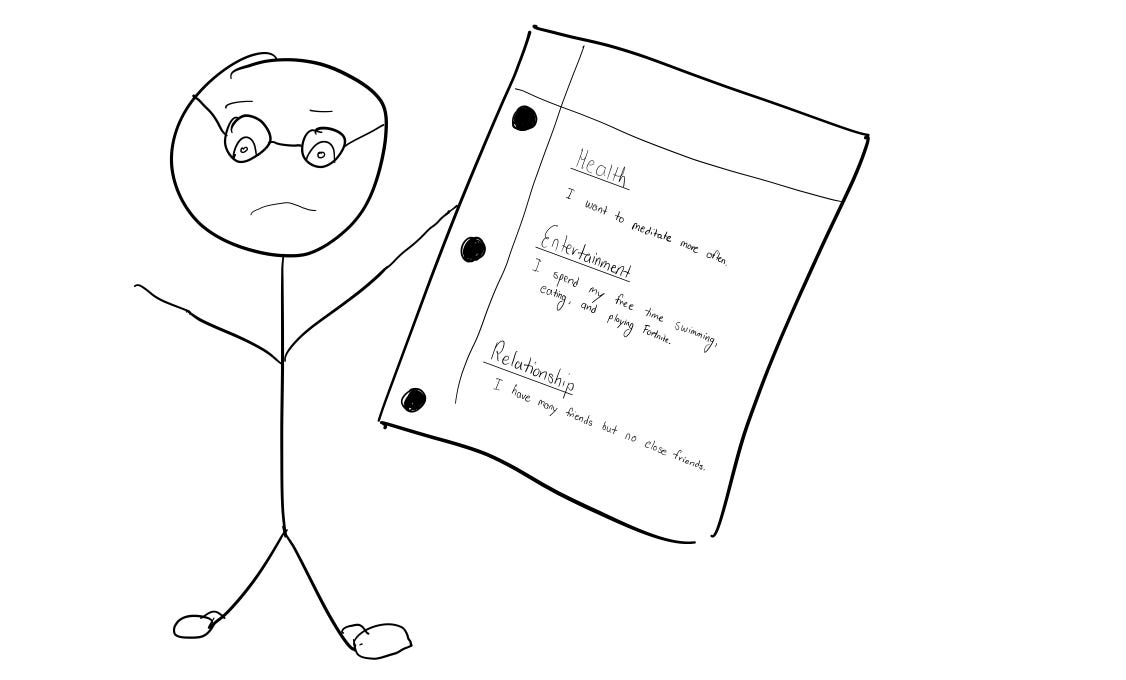“Before you can figure out which direction to head in, you need to know where you are and what … problems you are trying to solve.” — Bill Burnet
Career development is such a massive part of our lives that it’s natural to feel overwhelmed and stuck at times. There are so many things we can try to improve that we don’t even know where to start. This, coupled with the pressure to grow up and find your calling after you graduate from college or high school, puts you in a terrible spot to make meaningful change. In this email, you’ll learn how to identify where you are in your career development journey.
“How are you?”
You’ve heard this question countless times before, but have you ever answered it honestly? What is the reality of your current situation? Are you a college student looking for work experience, an early professional at Google struggling to make an impact on your product team, or a high school student who just graduated and is looking for ways to get a bit ahead of your peers? Who you are and where you are at is important to understand because, as Stanford Life Design Professor Bill Burnett writes, “You can’t know where you’re going until you know where you are.”
We’ll break up our lives into three sections:
Education
Work
Life
What you are going to do is divide your life into these three sections and ask yourself, “how am I doing here?” Our goal is to gather some data on ourselves and make a decision on what parts of ourselves are slacking and need to be addressed. Try to be as honest as possible when going through this exercise, as it will only help you more. Let’s start with education.
Education
As a college or high school student, education is a big part of your life; you spend most of your time attending classes, participating in clubs, and studying for exams. It’s a process we are all familiar with, but that isn’t the only form of education we experience in life. We learn when we read books, have talks with our friends, participate in projects, attend talks, and listen to podcasts. We learn about all kinds of subjects and prefer to study certain topics over others. I want to think of all the ways you educate yourself and make a list of them. Are you satisfied with your list, or are there things you’d like to add and change? If not, write down why.

Work
Let’s make another list of all the work you do. What are the activities you consider “work?” This can include a part-time job, studying for a class, taking care of children, volunteering, or doing chores. Do you want to do more work or less work? What kind of work are you doing and is it making you happy? Write them all down and make sure to consider if the work you are doing is helping you reach your life goals.


Life
Although we tend to divide our personal lives from our work lives, we want to make sure that we pay attention to both when developing our careers. There are many elements to our personal lives, but I want to focus on these:
Health- Do you consider yourself healthy? Do you want to be in better shape? Health is anything related to your physical and mental well-being.
Entertainment- Things you do for fun, like going to the movies or painting on the weekends.
Relationships- This can include social and romantic relationships. Do you have a great support network? Do you feel loved and appreciated by the people around you?
Outside of work and education, these are the sectors of our lives that we actively engage with all the time that add or subtract from our overall happiness. If you have a great career but it requires you to be away from your family 80 hours a week, is that really the kind of life you want to live? Write out a few sentences that summarize the state of your health, your relationships with other people, and how you spend your time on fun things. Consider spending a bit more time on this question, as it’s incredibly important to take into account the current state of your personal life in any career development journey.


After completing this short exercise, are you happy with the results? You’ve probably noticed there are some parts of your life that you’ve been ignoring or don’t feel too good about. That’s completely fine because this is our starting point. We want you to identify the problems that are holding you back from feeling good about yourself and start addressing them properly.
Now that you have a more organized perspective on your current self, we need to figure out the direction we need to go in next. In the next newsletter, we’ll be discussing what “growth mindset” is and how adopting it will make solving the problems you discovered today infinitely more achievable.


Key Takeaways
Self-assessment will lead to self-growth
Lead towards education and career goals that will ultimately help you reach your life goals
Writing goals can help make it a reality
If you enjoyed this article, please consider subscribing to our newsletter where we talk about all things personal development.



